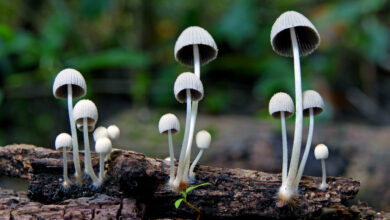Delta-8 THC vs. Delta-9 THC: A comparative analysis of the Effects

Delta-8 THC, an isomer of delta-9 THC, presents a dichotomy of effects, advantages, and potential hazards tethered to its intrinsic structural and chemical disparities. This expository discourse undertakes a comparative scrutiny of the two:
In the realm of chemical configuration, Delta-8 THC and delta-9 THC each epitomizes cannabinoids. Yet, their molecular architectures deviate slightly. The former showcases a dual bond upon the eighth carbon atom of its molecular chain, while the latter establishes its double bond on the ninth carbon atom. This structural divergence engenders nuanced interactions with the endocannabinoid system.
Delta-9 THC is Notorious for its Psychotropic Ramifications
Oftentimes concomitant with the euphoric states engendered by cannabis consumption. It exhibits a formidable affinity for CB1 receptors situated within the cerebral domain, thus precipitating euphoria, temporal distortion, relaxation, and, at escalated doses, potential anxiety or paranoia.
Delta-8 THC Also Liaises with CB1 Receptors
Resultantly, its psychotropic effects assume a milder tenor. Patrons often articulate the delta-8 THC-induced elevation as nuanced, characterized by reduced anxiety and paranoia vis-à-vis delta-9 THC. Notwithstanding, its potential to induce intoxication remains intact, with individual reactions warranting variation.
In the realm of potential therapeutic utilities, both delta-8 and delta-9 THC adumbrate prospective medical benefits by virtue of their interactions with the endocannabinoid system. Noteworthy among these benefits are analgesia, stimulation of appetite, and alleviation of nausea, particularly germane to individuals undergoing chemotherapy. However, prevailing research remains circumscribed, necessitating an augmented investigative agenda to fathom their therapeutic prospects holistically.
Legal purview constitutes an imperative dimension in this discourse. Delta-9 THC, owing to its psychoactive proclivities, assumes the mantle of a controlled substance in numerous jurisdictions. Its legal standing pivots upon regional edicts and bylaws, encompassing locales wherein it is proscribed outright.
Delta-8 THC’s Legal Status
Delta-8 is typically sourced from hemp, a legal entity courtesy of the 2018 Farm Bill in the United States, its legal berth remains subject to divergent construals. This pertains to its legality as either a natural derivative of hemp or as a derivative akin to delta-9 THC. Jurisdictional mores preside over the regulatory quotient, thereby demanding prudent scrutiny of local ordinances prior to the procurement or utilization of delta-8 THC products.
Impending Risk Warrants Scrutiny
While delta-8 THC augments a mellower psychotropic expedition relative to delta-9 THC, it remains potent in instigating cognitive dysfunction, motor skill modulation, and concomitant side effects characteristic of THC exposure. Furthermore, the dearth of unimpeachable oversight and regulation in the delta-8 THC marketplace unfurls the prospect of disparate product quality, thus insinuating inadvertent consequences upon consumers.
Conclusion:
In conclusion, the nexus between delta-8 THC and delta-9 THC embraces disparities in psychotropic effects, potential advantages, and perils. Delta-8 THC proffers a tempered elevation and, ostensibly, fewer adverse sequelae, yet both compounds portend the potential to debilitate cognitive and motor functions.
The legal ambiance encompassing delta-8 THC remains fluid, thereby obligating vigilant awareness of local statutes and judicious discretion when contemplating the utilization of either compound. As with all substances, judiciousness and circumspect utilization constitute a quintessential paradigm




